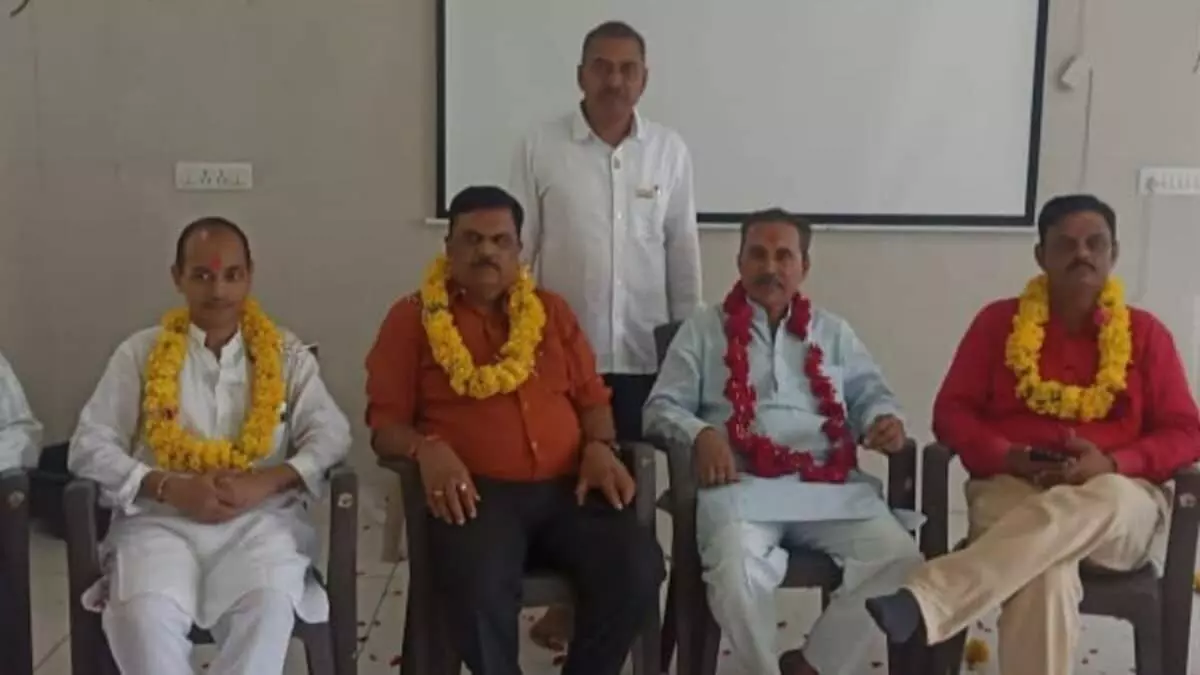
Bilkis Bano: convict challenges plea challenging convicts' remission
text_fieldsConvicts in the Bilkis Bano rape case were garlanded at the VHP office in Gujarat.
New Delhi: One of the convicts of the Bilkis Bano gangrape case questioned the right of the petitioners who challenged in the Supreme Court the remission granted to him and ten co-convicts in the case, PTI reported.
The convict, Radhey Shyam, filed a counter-affidavit arguing that none of the petitioners is related to the case and is either a political activist or a "third party stranger".
He questioned the validity of the petitioner's challenge, saying that this would open doors so that anyone could jump in any criminal matter before any court of law".
He argued, "That at the very outset the answering respondent seriously questions the locus as well as maintainability of the instant writ petition which has been filed by a political activist or in other words, a complete stranger to the instant case,"
He highlighted that the writ petition filed to challenge his remission was filed by these three: One, CPI(M) leader Subhashini Ali, who claims to be a former parliamentarian and Vice President of the All India Democratic Women's Association, two, Revati Laul, claims to be an independent journalist, whereas petitioner no 3, Roop Rekha Verma, claims to be a former Vice Chancellor, Lucknow University.
According to him, the apex court has held earlier that no strangers can be permitted to question the correctness of a decision in a criminal case.
"Thus, it was further held that unless an aggrieved party was under some disability recognised by law, it would be unsafe and hazardous to allow any third party to question the decision against him," he said in his affidavit filed through advocate Rishi Malhotra.
He cited the 1992 verdict in "Janata Dal versus HS Chowdhary" and "Subramanian Swamy versus Raju" in 2013 to substantiate his argument that a third party who is a total stranger to the prosecution has no 'locus standi' in criminal matters and has no right whatsoever in filing a petition under Article 32 of the Constitution.
The affidavit said that in this present writ petition, the petitioners seek to challenge the remission order of the State of Gujarat, whereby 11 accused persons, including the answering respondent, were released.
"In Para 1B, the writ petitioner has pleaded that she has no personal interest in the matter and does not stand to gain anything from the filing of the same.
"It is further submitted that the writ petition has been filed purely in the public interest and according to the petitioner the release of such persons has shocked the consciousness of the society which has prompted the petitioner to file this Public Interest Litigation", it said.
The affidavit said that, interestingly enough, neither the State nor the victim nor even the complainant has approached this court and thus, it is respectfully submitted that if such cases are sought to be entertained by this court, "a settled position of law would certainly become an unsettled position of law".
On August 25, the top court sought responses from the Centre and the Gujarat government to the petition challenging the remission granted to the 11 convicts in the case.
It had asked the petitioners to implead the 11 convicted persons, who have been granted remission, as parties in the matter.
Trinamool MP Mahua Moitra has also filed a separate plea in the top court challenging the grant of remission.
Bilkis Bano was 21 years old and five months pregnant when she was gangraped while fleeing the riots that broke out after the Godhra train burning incident. Her three-year-old daughter was among the seven family members killed.
The investigation in the case was handed over to the CBI, and the trial was transferred to a Maharashtra court by the Supreme Court.
A special CBI court in Mumbai had, on January 21, 2008, sentenced the 11 to life imprisonment on charges of gang rape of Bilkis Bano and murder of seven members of her family.
Their conviction was later upheld by the Bombay High Court and the Supreme Court.























